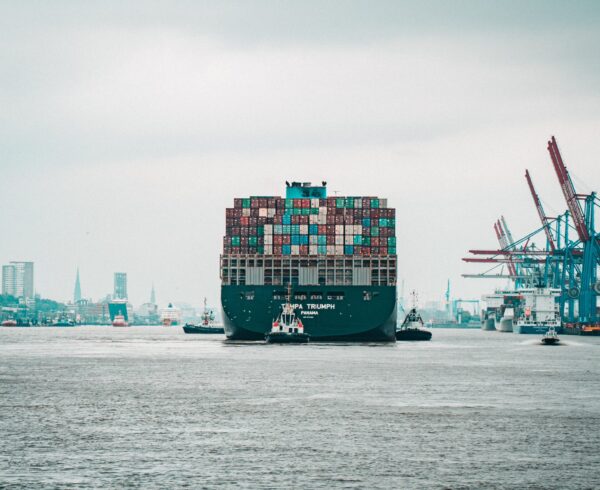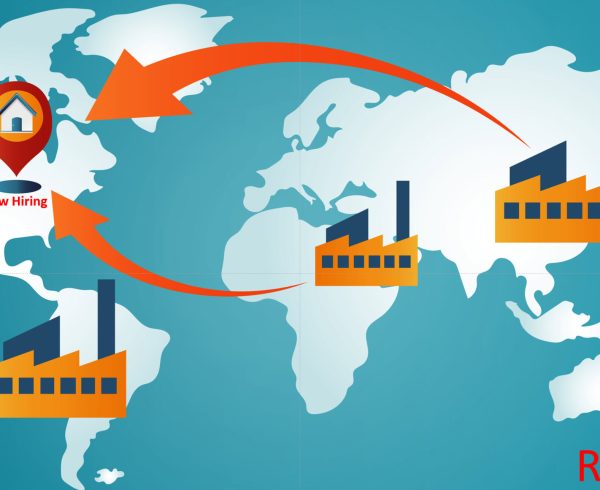In A World Transformed By COVID-19, Digital Transformation Is More Important Than Ever
Until recently, globalization was heralded as the major engine of global economic growth, and central to globalization has been the expansion of global value chains (or GVCs).
However, the COVID-19 crisis has fundamentally challenged the logic of globalization. It has brutally exposed the underlying flaws of a system so heavily based on cutting costs.
In a new white paper, authored for the management consulting firm, Mythos Group, I make the case for businesses to undertake some far-reaching changes, if they are to thrive in the new normal of a post-pandemic world.
Key recommendations are:
1. Reducing our over-reliance on China
2. Reshoring
3. Digital Transformation
In this article, I am focusing on Digital Transformation.
Building Value Chain Resiliency Through Digital Transformation
The pandemic has caused massive disruption to global value chains, in terms of the availability and supply of raw materials, stalled production, and breakdowns in transportation and logistics. So, as we push towards a new normal, post-COVID-19, it will be increasingly important for organizations to shift to more agile and adaptable global supply chains that are fully digitally enabled.
The coalescing of technologies like 5G, Artificial Intelligence (AI), Big Data Analytics (BDA), Blockchain, Cloud and Edge Computing, Robotics into the Industrial Internet of Things (IIoT) will enable businesses to redesign cost-effective, more efficient, and resilient GVCs capable of withstanding future pandemics and other uncertainties.
Digital Transformation means different things to different people in different industry sectors, but here are just some examples of technologies that have the potential to transform and strengthen GVCs in the post-pandemic age:
Smart Factory: Also known as Intelligent Factory, this is the centerpiece of the digitization of an entire manufacturing organization. Through the interconnectedness made possible by the Internet of Things and other cyber-physical systems (CPS), smart factories can efficiently integrate with the rest of the supply chain, thus allowing for real-time process alterations and improvements.
By investing in a smart factory, organizations stand to benefit from:
- Improved asset tracking and management;
- More efficient use of resources such as energy, buildings, or material stocks;
- Increased flexibility to respond to changing customer or market demand;
- Improved safety;
- Enhanced sustainability through a smaller environmental footprint.
3D Printing: 3D printing (3DP) is already leading the way in the digital transformation of many GVCs. With 3D printing, organizations can better connect the physical global supply chain with a digital thread, and manage products more efficiently from concept to end-of-life. Manufacturing can be distributed to any location that has digital manufacturing systems in place simply by sending a file, and this decentralization enables a more collaborative, transparent, and efficient global supply chain.
3DP has the potential to fundamentally change today’s complex supply chains, moving manufacturing closer to consumption. By investing in 3DP, organizations stand to enjoy benefits including, but not limited to the ones listed below:
- Decentralization – taking manufacturing to local markets or the customer much faster;
- Reducing the barrier to entry in the manufacturing and production of goods;
- Cost-effective individual customization;
- Increased go-to-market speed;
- Inventory reduction.
Big Data Analytics: The widespread use of digital technologies has led to the emergence of big data analytics (BDA) as a critical business capability to enable organizations to gain a commanding competitive advantage.
Big Data refers to the massive amounts of data collected by organizations using their Enterprise Resource Planning (ERP) and Supply Chain Management (SCM) systems, and IIoT enabling technologies. By analyzing this data using statistical methods, organizations generate new insights that can help improve their end-to-end supply chain decision making.
Post-COVID-19, Reimagining Global Value Chains
Taken seriously and applied appropriately, Digital Transformation has the potential to shore up and build resiliency on GVCs, in ways that will benefit every partner.
Mythos Group’s white paper, Post-COVID-19, Reimagining The Global Value Chain, contains more detail on this and other recommendations, and is available to download for free from https://bit.ly/MG-Whitepapers.







